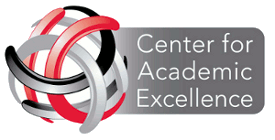The 2016 conference theme is "Collaborations for Empowerment & Learning" and offers strands on collaborative teaching & learning, technology, the scholarship of teaching & learning, and community-engaged scholarship.
Subscribe to RSS Feed (Opens in New Window)
| 2016 | ||
| Thursday, May 26th | ||
| 9:30 AM |
Education 3.0: Neuroscience + Learning Research + Education Technology Jeff Borden, Saint Leo University 9:30 AM - 10:45 AM Brain science shows us that how we typically use PowerPoint stinks. It suggests that for some, learning should not be attempted before 10am while for others, learning should conclude by noon. Cognitive research proves that listening to a lecture is the brain-equivalent of watching televised fishing. Education technologists have produced social learning assets that not only cross over the walls of classrooms, but even the borders of countries for deeper, more engaging learning. This highly interactive session will "Do, Show, Tell, Review, and Ask" as participants engage in pattern recognition, craft problems prior to solving them, collaborate in real-time to promote social learning, and employ other, immediately usable techniques for the classroom. This presentation will focus on ways to create multi-nodal and multi-modal connections based on effective practices from practitioners around the globe, all of which could be categorized as Education 3.0. Participants will be shown many examples of web assets and learning experiences (both in-person and eLearning) that promote social learning, transformative learning, game based learning, and learning based on cognitive science. The audience will see and hear about how to create better (more authentic) MOOCs, simulation, curriculum integration events, authentic assessment, and problem based learning experiences within an eLearning framework. Be sure to bring your devices as the session will encourage feedback, web-based experiences, and interaction. Finally, participants will leave this presentation with multiple resources (learning games, web tools, apps, illustrations, etc) and opportunities for application immediately. |
|
|---|---|---|
| 11:00 AM |
Teach An Instructor To Digitally Fish and Feed Students For Life! Jeff Borden, Saint Leo University 11:00 AM - 12:00 PM With tens of thousands of digital assets on the web today, how can an instructor effectively and efficiently find, aggregate, and curate the ones that are meaningful and relevant to them? This hands-on workshop will showcase hundreds of open source, commercial, and free tools that foster collaboration, curriculum integration, social learning, transformative learning, and help personalize the learning experience. This workshop will explore the benefits of teaching with technology in open, social, and diverse learning environments. Some concepts, illustrations, and filters to be shared will be around:
|
|
| 1:15 PM |
Creating a Culture of Learning Innovation Jeff Borden, Saint Leo University 1:15 PM - 2:15 PM “We cannot solve a problem by using the same kind of thinking we used when we created them.” When Albert Einstein said that, he had education in mind. And the problems in education are plentiful – retention, enrollment, cost, diversity, accountability, and on and on. But education problems do not simply impact schools, they impact living. By 2025, the Lumina Foundation and George Washington University report that the United States will have 23 million jobs which require at least an undergraduate degree with no qualified American to fill them. Racing toward 10 billion people on this planet will result in challenges of epic proportions. Never before in history have we needed more ideas. This session will showcase various frameworks to both model and encourage learning innovation. From how to get students innovating to how to be innovative as an educator in a consistent, systematic way within a learning culture, the paradigm can be shifted. Participants will see examples of learning innovation, at scale, that can impact the problems we all face today and will face tomorrow. |
|


